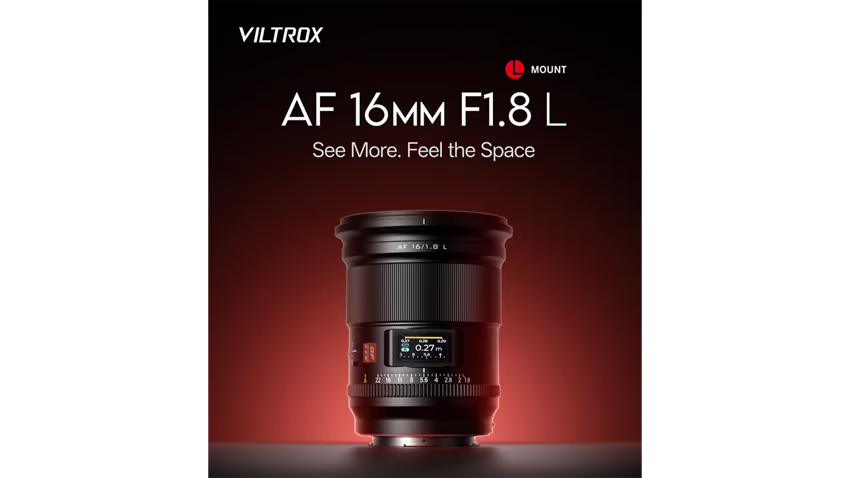Sound designer, composer, and engineer Brandon Wayne Reed took home the Young Designers Managers and Technicians (YDMT) Robert E. Cohen Sound Achievement Award at USITT19 in Louisville. Since then, he's traveled the United States sound designing and composing for multiple shows and theatres as well as maintaining a thriving freelance career for regional theatres. After his award win in Lousiville, we sat down to discuss how he balances work and pleasure and what keeps him coming back to USITT. We've since caught up with Brandon to reflect on his last year. Let's see what he was up to in 2019!
Tell me how it feels to win this YDMT Award.
I've always looked at USITT from afar. A lot of the designers in the industry, especially the younger ones that I really admire, they're all winners of this award. Or they were winners for the Rising Star Award. So from afar, I always admired. To me, that was becoming an aspiration.
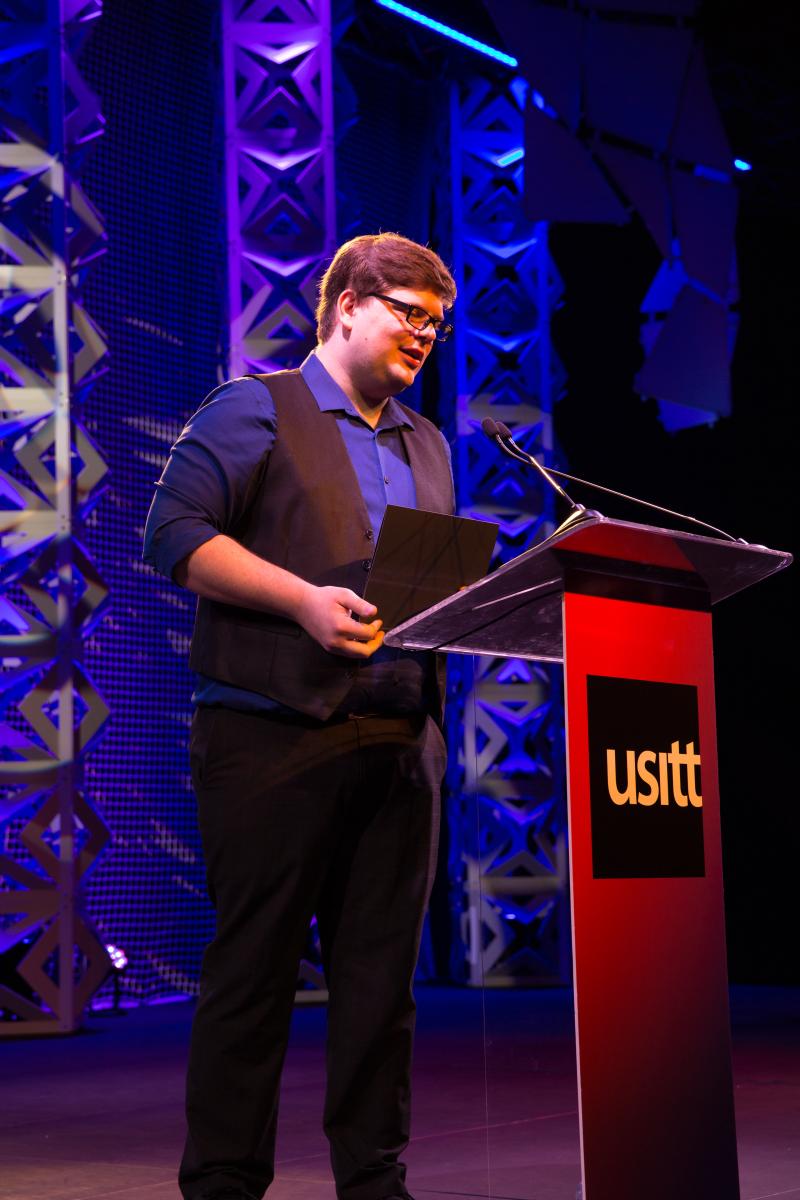
I'm in my last year of Grad school and I was talking to our lighting professor who's a member as well, and he said, 'If you're interested in doing this, I can submit you.' And I said, "Yeah, sure." I didn't think anything of it. I gave him my materials and he helped me fill out the application. And then I was waking up with my partner on a Saturday morning when I got the email and I had her read it twice because I read it and I refused to believe it. I handed her my phone, while we were in bed and I was groggy, and said, "I'm not dreaming this, am I?" She said, "No, that's what you think it says." I've been on cloud 9 ever since and it's been wonderful. This whole experience since I've gotten to Conference has been absolutely wonderful.
What brings you back to USITT? What value do you find here?
I feel like a lot of what theatre is becoming is embracing the idea of pushing the envelope of what we define theater as. I don't think we're watching bedroom plays anymore, I think people are going to theatres to see more immersive and more theatrical types of productions. And there are always new tools coming out. What's been really great about coming to USITT is the sessions. It's always amazing to see from a sound design perspective what new software and tools people are using. I just learned last night that apparently some guy uses a video game software to trigger something remotely? I would never think to do it that way. That's why I keep coming back here. I ask myself how can I make my productions more immersive, more of a better of a story for an audience?
It's great to also see the new tech. It's always amazing to see these new tools to help us tell this story which I think is fantastic.
Who are some of your mentors?
From undergrad I had three mentors — Jen Groseth, Joe Court, and Matthew Tibbs. It's because of those three instructors that I'm in this business and why I am who I am today.
In graduate school, Richard Scholwin and Alec LaBau have really helped sharpen my skills and made me even more precise in what I do. I feel comfortable doing anything because of those two. Anyone can come up to me with any kind of project and I say, "Cool, let's do it." Where beforehand, I would have had some kind of reservation. Now I don't care. Do you want to do a ten-point system in a dome? Let's do it. Yeah, let's do it.
Professionally, I assist and work with a lot of people like Lindsay Jones and Richard Woodbury, Rick Sims, and Christopher Kriz once. A good chunk of those are Chicago based people which is where I started. I owe it to them for me teaching professionalism and how the regional theatre circuit works.
Tell me a little bit about then your path. What are your aspirations?
A little precursor, growing up I was always a huge music collector. Instead of hanging out with my friends in high school, I would always just collect CD's and records. That is what I loved to do and that was my passion. I would also do stagehand work for my high school theater.
Fast forward to undergrad, I signed on to do the theater track at Ball State University, thinking I either will love this or I'm going to hate it. During my very first semester of undergrad, I took an intro to sound design class with Jen Grosif, who was the sound professor at the time. It changed my mind. I ran the sound board in high school, but everything I thought I knew about what sound was, was completely wrong. It was like hitting "empty trash" on my brain and relearning it from scratch. The first play we did as a project was A Bright Room Called Day, by Tony Kushner. For me, that's when I realized, "Oh, you can actually use sound." Finally, this little emo boy from high school finally had the ability to use his love of music to actually tell a story.
First-year students at Ball State don't design, you just learn the department and they learn about you as a student. But, I was lucky and apparently, they liked my work so much in the sound design class they had me design the black box show my first year which was Greek. It was a modern retelling of Oedipus Rex. After that I was just hooked. I was sold and knew this is what I want to do.
After that, while most sophomores were starting off in the black box, I was assisting on the main stage and just jumping off and jumping off.
By the time I graduated, I got to work with a guest director for The Thirty-Nine Steps and that was the ceiling point of me saying, "Yes, I want to pursue this career." So, I decided to make the move to Chicago. I started off as an apprentice at the Steppenwolf Theater Company, mostly as an engineering perspective, and then learning how to be a better engineer and at the same time assisting bigger sound designers, like Lindsay Jones, Richard Woodbury, and Fitz Patton.
While I loved Ball State, there was not a lot of peers to look to. I was one of like maybe two or three sound students. We were the only ones. We didn't have anyone else to look up to. In Chicago, I finally I had that person to look to, and it was a huge, eye-opening thing.
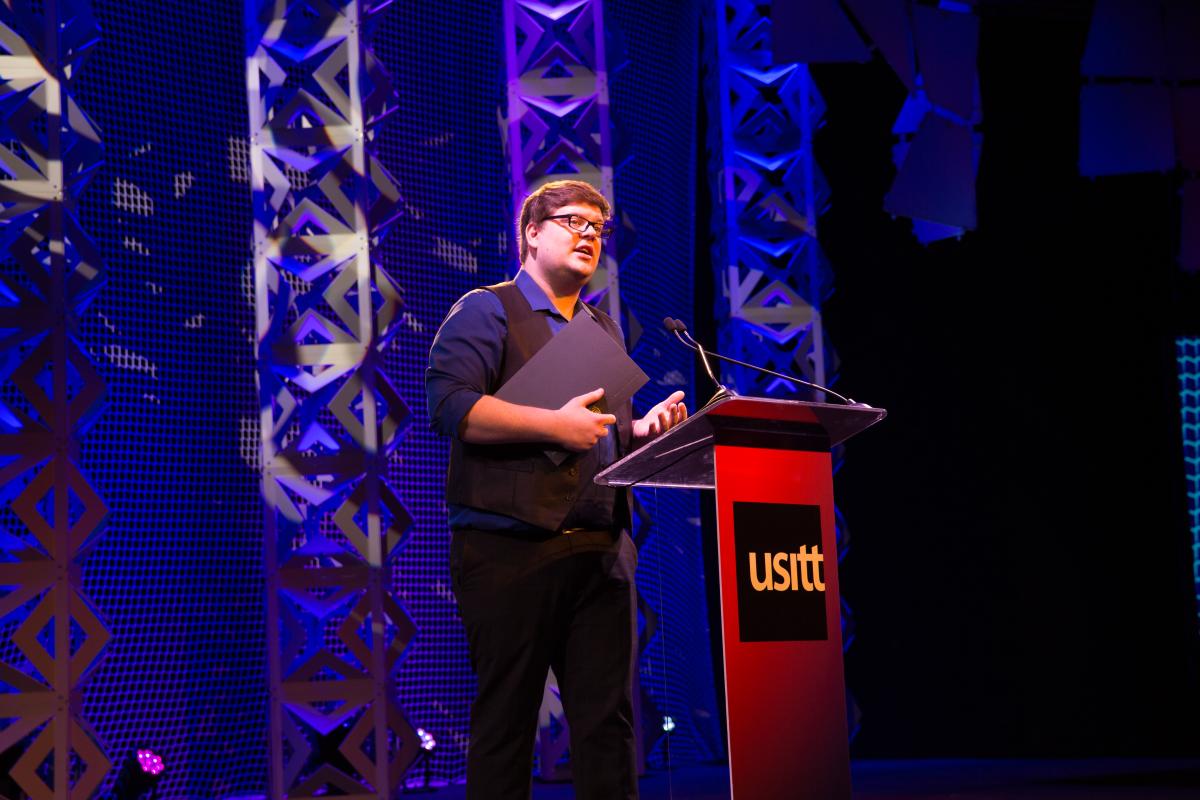
I got to see and hear from a professional person who's done Broadway, and who's done high caliber art, and it was mind-blowing to me. I continued assisting them at Steppenwolf, and I would also do my old freelance gigs outside of that. I was taking the teachings I was getting from them and applying it in my own freelance work.
I did that full time for about three years. I didn't have a part-time job. I literally was just designing shows. I started off in a Chicago storefront scene, which if anyone knows anything about that, basically, you do one show for a $100 stipend, and then you do another show for $300, another one for $500, and if you're lucky, you get the one big storefront that pays you around $1000. I did that for three years, not knowing what I was going to get every month. I built my resume and I built my skill set. At some point, I felt like I finally was able to do one or two shows a month without destroying my brain that was paying me decently well. But, I felt like I hit a block. Like I either have to keep doing what I'm doing now for another couple of years and build that reputation and those connections, or I go back to school.
The deciding factor was that I did a musical for the Hypocrites, called Adding Machine the musical. That's where I started noticing the flaws in my training. At Ball State, I didn't get a chance to do a lot of musicals. I mixed musicals, but from an engineering perspective, I didn't know how to put it together. That was really advanced for me. After that tech process, I felt embarrassed and I felt ashamed a little bit. I felt like I should know how to do this. So, that was my deciding factor to go back to school. I went from doing no musicals to being signed on this year alone to do eight different musicals. I feel qualified, more than qualified, to do musicals now. Nothing scares me in terms of technology. I feel like I can do anything from opera, to dance, to device work, Shakespeare, plays, and musicals. It does not matter to me now. I don't have that doubt in my mind anymore.
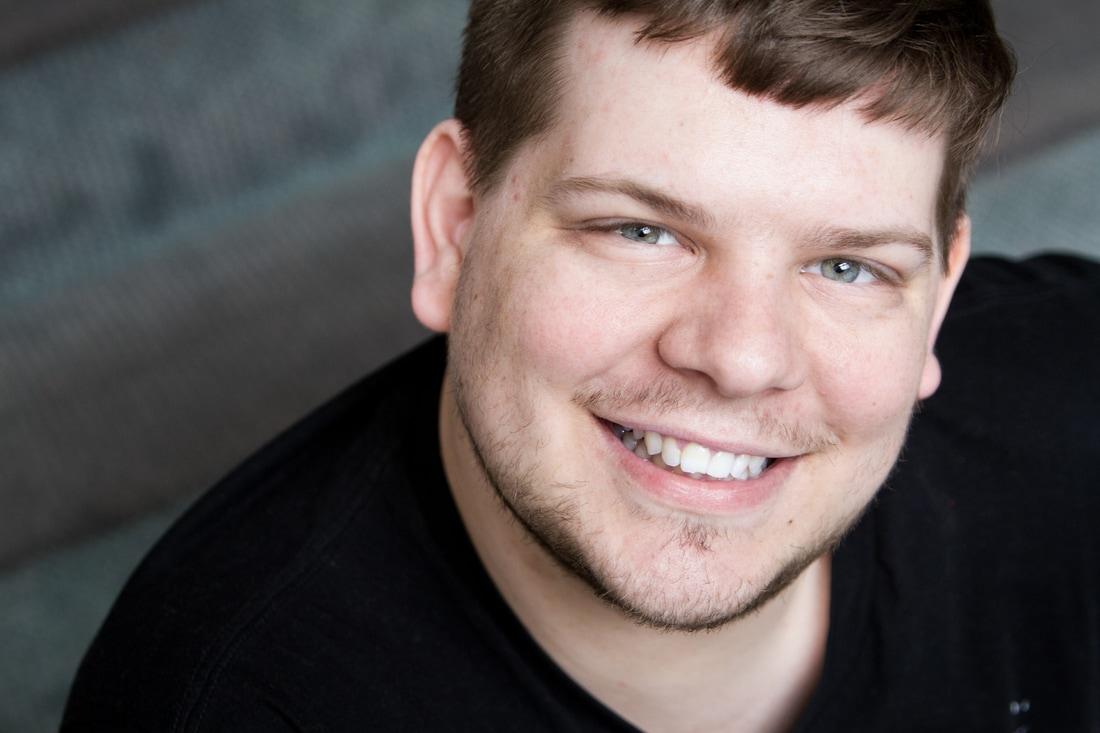
With all of the incredible work you're doing, how do you establish a work-life balance?
I think that's something I'm always trying to fight with. I'm lucky enough to have a partner that I come home to every night. She is my saving grace in terms of my sanity. It's nice to always have someone to come home to and talk to. If I'm frustrated, or I feel like I just want to decompress, then I have that person I can confide in. Outside of that, I'm always trying to learn new things. I'm always trying to find what the next big audio thing is. Either, whether I'm playing with plugins, or if I'm recording folly stuff or sometimes I'll have my zoom recorder just with me. For example, I'll hear something and say, "Oh, this sounds like a beautiful environment." I'll just sit and just listen and just record for a while. Sometimes I get some weird stares, but sound has become such a pivotal thing of my life, I don't know if I ever know to turn it off. So, I credit a lot of that work-life balance to my partner. Before coming here for Conference, she was like, 'We're going to go see a movie.' Like there was no if, and, or buts about it. So we went to go see Captain Marvel.
How was it?
I loved it. She, on the other hand, was kinda like, 'Eh, it's okay.' And I was like, ah, we have varying degrees of taste.
We always try to make it a point to schedule things. There's always room for improvement, but I've gotten better at scheduling and planning out my life around her, my own time, and work time.
Since USITT19 in Louisville, Brand Wayne Reed has accomplished many of his goals anbd continues to grow his career in the design industry. Reed graduated in May with my MFA in Sound Design & Technology from University of Illinois at Urbana-Champaign. He has designed and composed a world premiere play called Because I Am Your Queen (A Feminist Fantasia), which was his graduate thesis with University of Illinois that they did in collaboration with Tectonic Theater Project's Barbara Pitts McAdams.
From May-July, he was a designer in residence for the Adirondack Theatre Festival where he helped premiere three new musicals, Calling All Kates, The Enlightenment of Percival von Schmootz, and BEAU (with Broadway director Michael Wilson). BEAU has had an official soundtrack released and is currently looking to have more life with potential productions in regional theatre markets (maybe New York). It's an original musical created by Douglas Lyons and Ethan D. Pakchar.
In August Reed started as the Resident Sound Designer / Engineer for PlayMakers Repertory Company in North Carolina. He is the in house sound designer for most shows and serves as audio engineer for all applications. He's also teaching sound design for theatre at University of North Carolina Chapel Hill. So far he's designed No Fear and Blues Long Gone: Nina Simone, and Edges of Time (upcoming).
Reed is still freelancing across the country with shows. Upcoming is Ada and the Engine with Cardinal Stage Company in Indiana in March, Jelly's Last Jam with Cape Fear Regional Theatre in North Carolina this May, and this summer, The River Bride with American Players Theatre in Wisconsin, and Man of La Mancha with Lake Dillion Theatre in Colorado.
"I'm accomplishing my dream of being a regional sound designer and it's so satisfying," Reed said. "I'm continuing to branch out and do more regional theatre sound design, which I love to do. It's amazing to see that career goal and dream become a reality. Which I couldn't have done without USITT's support and encouragement."
Off
More News
Support USITT
For many 501(c)3 nonprofit organizations, USITT included, donations are a lifeline. We are able to continue to expand our online offerings to our Members and to our industry thanks to Membership dollars and the generosity of our donors.

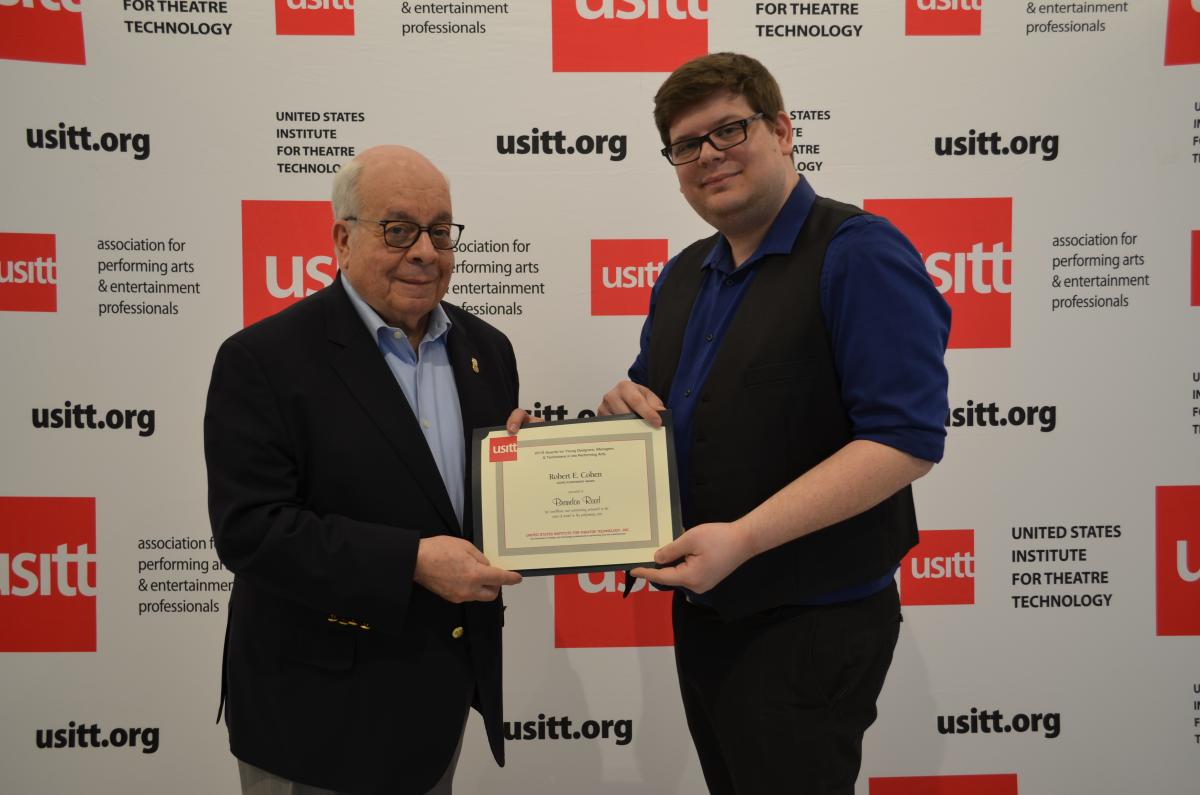
.png)
